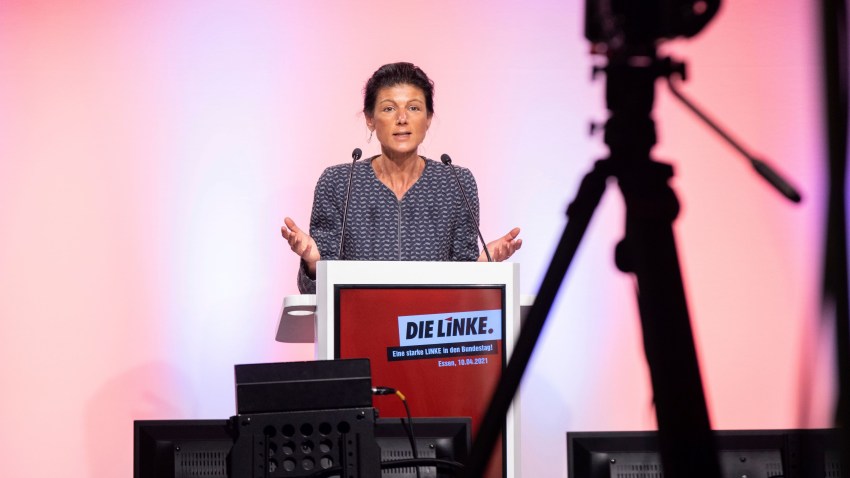The surge of support for the far-right Alternative for Germany party, or AfD, to over 20 percent in recent polls has led to growing concern over the future of democracy in Germany. Yet even as momentum builds for the AfD, other movements are more quietly preparing the ground for their own campaigns to dismantle the country’s political status quo. Of these populist challengers, the one that has the most potential for success is the Left Party, one of whose most prominent figures, Sahra Wagenknecht, has become a political star through charismatic performances in parliamentary debates and on television talk shows.
A loyal member of East Germany’s ruling Socialist Unity Party, or SED, until the fall of the Berlin Wall, Wagenknecht became a founding member of the SED’s post-reunification successor party in 1991, at the age of 23. She has remained a prominent figure in German politics ever since. In the mid-2000s, Wagenknecht played an instrumental role in the party mergers that created today’s Left Party, which brought together far-left networks in eastern and western Germany, as well as defectors from the center-left Social Democratic Party, or SPD, enraged over the welfare reforms of SPD-Green coalition governments under then-Chancellor Gerhard Schroeder.
For a while, Wagenknecht and other senior figures in the Left Party kept it united enough to get around 9 percent of the vote in national elections in 2017 and over 25 percent of the vote in some regions of the former East Germany. But since then, the party has struggled, in part due to its failure to gain support in western Germany, but also because many voters in eastern Germany who are hostile to the post-reunification order have been drawn to the AfD’s confrontational approach.

